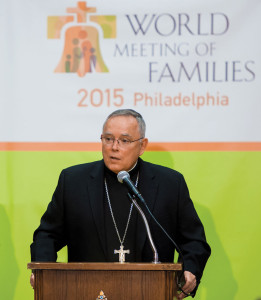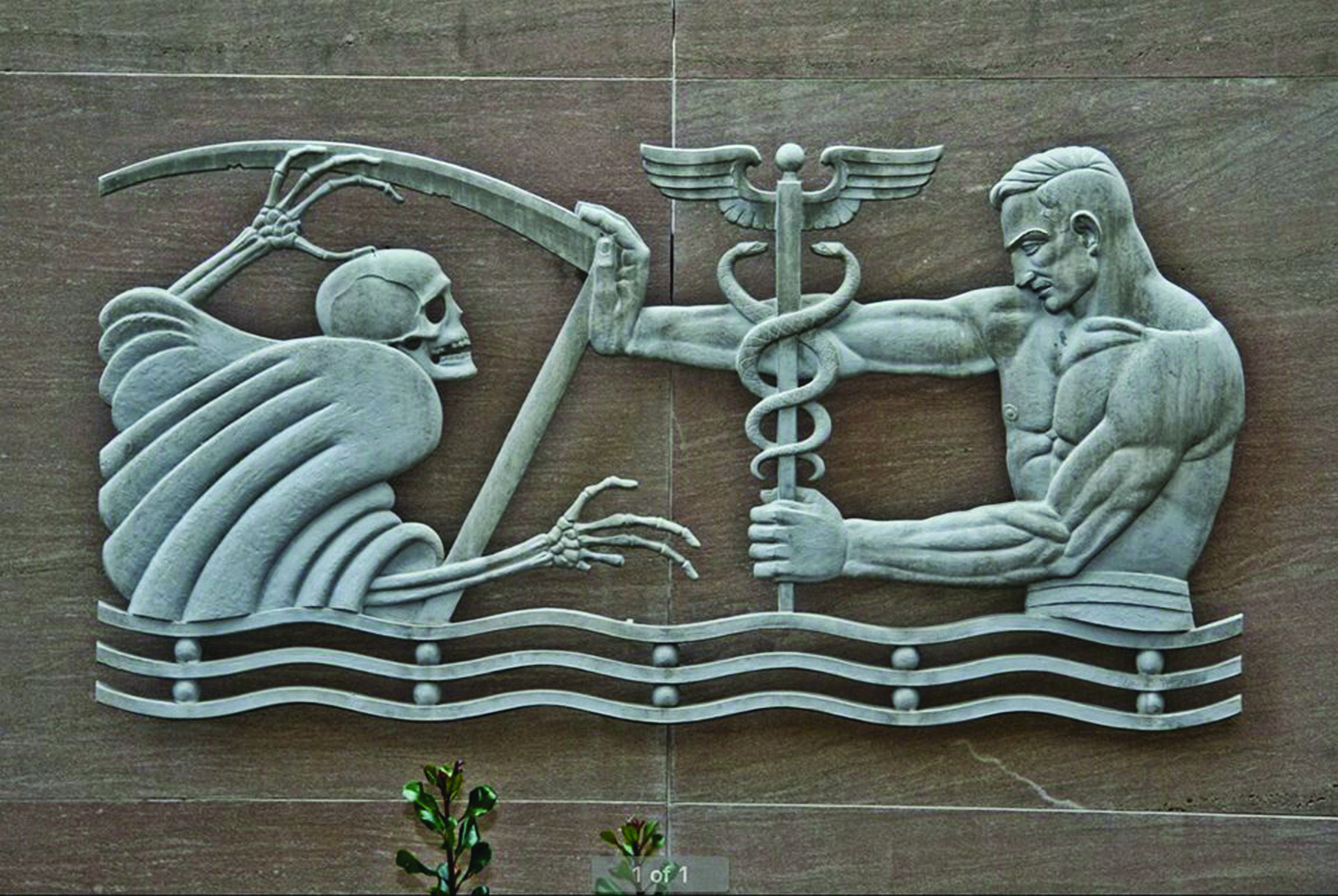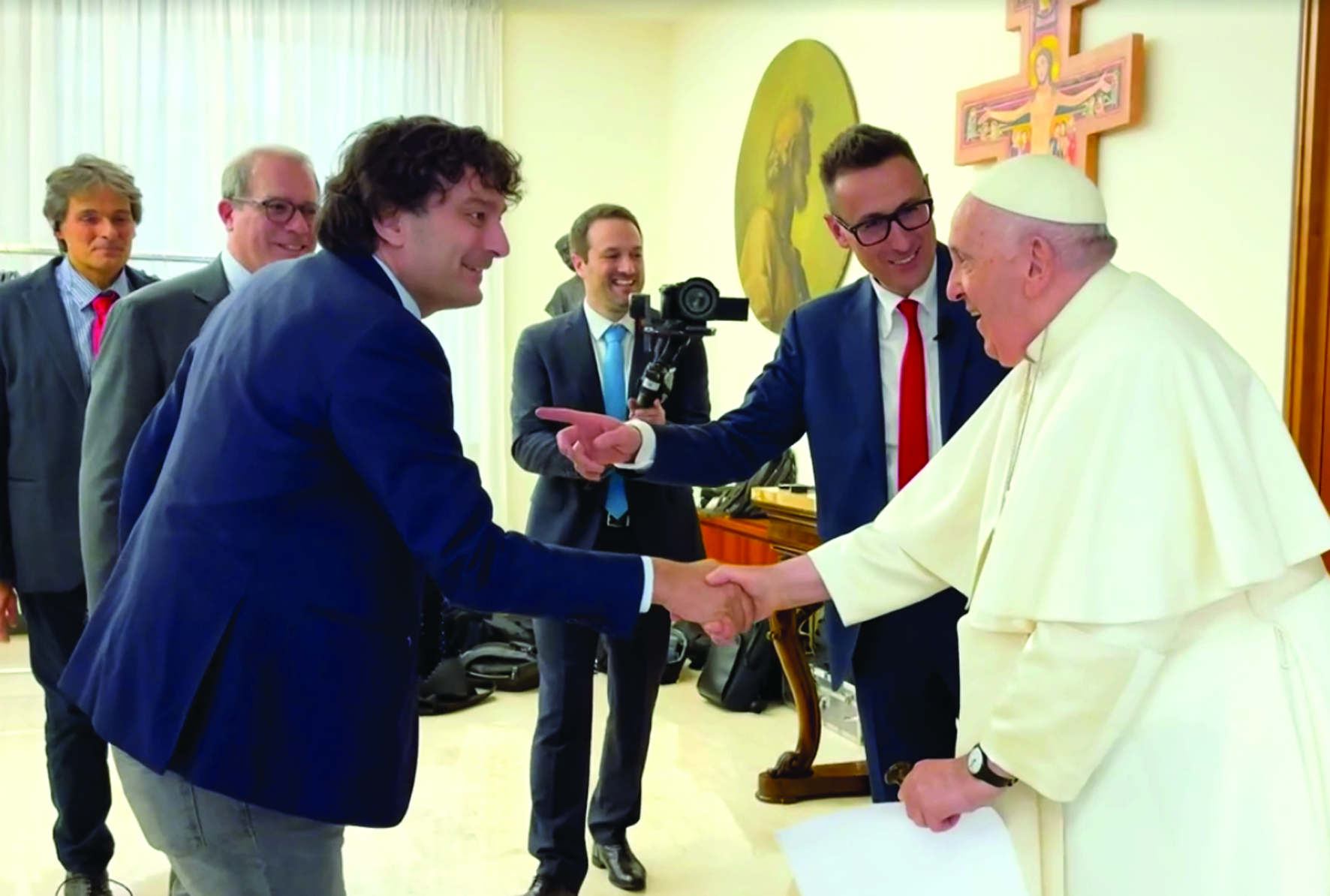Pedophilia, the reform of the Curia, the challenges confronting the Church under Pope Francis’ pontificate. A 360° interview with Charles Chaput, archbishop of Philadelphia, who illustrates the situation of one of the biggest dioceses of the USA three months after Jorge Bergoglio’s election as Pope.

Philadelphia Archbishop Charles J. Chaput answers questions at a news conference about plans for the World Meeting of Families to be held in the city in 2015 (CNS photo).
Archbishop Chaput, what do you think are the main issues that the modern Church – and the new Pope – must absolutely address?
Archbishop Charles J. Chaput: A lack of faith and a lack of hope: These are the central sufferings of the modern soul. Benedict XVI’s concern for modern man’s inability, or refusal, to believe in God was profoundly wise. Faith gives us meaning and feeds the soul; it creates hope. Hope liberates us from fear and frees us from an obsessive concern about ourselves. That kind of freedom allows us to really see the dignity of others, and then to act toward them with charity.
Philadelphia has been rocked by the sex abuse scandal. How badly has it shaken the faithful, and what do you see as the way out?
Actually, that expression “rocked by scandal” should be retired along with a lot of other media clichés. People get addicted to lurid headlines and the drug of anger. Then they stop thinking clearly about how these tragedies happen and the best way to prevent them in the future. The abuse scandal in the Church is inexcusable. Innocent children and families were terribly hurt. As a Church, we — and by “we” I mean first of all we bishops — owe victims our sorrow for what they endured, our prayers and our material support in helping them heal. Philadelphia Catholics have spent the last decade frustrated by the sins and mistakes that happened here. It would be a miracle if their morale weren’t low. The way out of this kind of problem is for bishops and other Catholic leaders to act with honesty, humility and justice in dealing with victims and renewing the Church. Over time, that kind of witness is the only thing that heals.
How do you think Pope Francis should proceed in this area? What would you suggest to him?
The Pope seems to know very well what to do. He doesn’t need my advice. His manner is simple, direct and honest. People are starving for that kind of leadership, both within the Church and everywhere else. We live in a modern cocoon of public relations, marketing and message control. Any leader who simply tells the truth, and tells it simply, is like rain in a desert.
Sometimes though, the chemistry can also work in reverse. When we act out of love, for no other reason than to ease the suffering of a fellow human being, that love changes us. It leads us to hope that good can be accomplished; that the world might change. And when we hope, we open our imaginations and our souls to things higher than ourselves. That allows God to offer the seed of faith. So I think Pope Francis’ special emphasis on service to the poor, on mercy, and on the need to simply act out of love, touches the modern heart in a very powerful way.
Reform is a word we heard a lot during the conclave. How do you think the Pope should proceed with the reform of the Curia?
I’ve always liked the words of the Bauhaus architect, Mies van der Rohe: “Less is more.” Simplicity works, in life and in organizations. It’s not always possible, and it’s not the only skill a leader needs, because people are complex. But it’s an important principle to bring to the task of reform.
And what about the so-called Vatican Bank, the IOR? Is transparency there something the American bishops are concerned about?
Clarity of finances is a good thing; a very good thing. The resources of the Church ultimately belong to her people, living and deceased. The Church holds these resources in stewardship for her people. She uses the resources to do the work of the Gospel in their name. Church leaders therefore have a duty to exercise as much financial transparency and discipline as best business practices require.
As the head of a big U.S. archdiocese, do you encounter difficulties in your relationship with the Holy See? What do you think needs to change in Rome?
I’ve always been blessed with very good relations with Rome. Most of the leaders I’ve dealt with at the Vatican in my years as a bishop have been admirable, really admirable, in carrying out their responsibilities. I’m mainly concerned about my own conversion and reform, and the renewal of the Church in Philadelphia. That’s more than enough to think about.
What about the importance of religious freedom?
Religious believers, acting alone and in communities, keep alive the best ideals of a nation. The less religious freedom a people have, the deader the soul of a society becomes. In the end, there is no such thing as the “human person,” human rights or human dignity, without a living God to guarantee them.






Facebook Comments